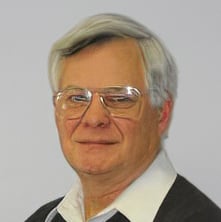This post was written by Bill Lydon, InTech magazine's chief editor.
The road to becoming an automation professional often starts as a career choice and then becomes a lifelong profession. Automation professionals are important contributors to the economy and society. They are known for their specialized knowledge. Starting with degrees and certifications as the foundation of this knowledge, they have a deep personal commitment to learn. They know that the key to quality and efficiency is professionalism, which includes skills, good judgment, and productive interaction with others.
Automation and manufacturing technology is changing at a rapid pace, and professionals are always eager to learn and improve skills. Professionals are passionate, honest, and reliable. They get the job done by finding solutions and overcoming obstacles with integrity. Professionals are the kind of people that others respect and value. In the automation profession, we are fortunate to have the International Society of Automation (ISA) as the premier professional organization since 1945. ISA sets the standards for automation and helps worldwide members and the industry solve difficult technical problems, while enhancing their leadership and personal career capabilities.
As a volunteer-driven organization, ISA depends on its members and leaders to advance the mission of the Society around the world. A great example of the high level of professionalism of ISA members was demonstrated at ISA Automation Week 2013, where people dedicated their time and talents to the automation profession. ISA members created and presented six educational tracks. Attendees benefited from the experience and know-how of leading automation and control experts, authors, innovators, and thought leaders from around the world to improve automation knowledge. Attending these sessions, the passion and commitment of participants to improve the automation industry come through loud and clear.
For decades, ISA members have been providing quality information to the automation community and creating leadership industry standards, including ISA-18, ISA-88, ISA95, and ISA-100. Standards, such as ISA-88 and ISA95, are now part of the fabric of industrial automation that have improved efficiency, productivity, and quality of manufacturing worldwide. This is only possible with the contributions of automation professionals participating in standards committees. In addition, ISA technical divisions provide forums for users to share ideas and best practices with activities, including symposiums, technical papers, short courses, and workshops. ISA Technical Interest Groups are professionals, aligned by common technical interests, who meet in an electronic community to share information and ideas, discuss topics of interest, share documents, and answer questions posed by other community members.
Participating in ISA, you can develop yourself as a professional by learning from worldwide subject matter experts, automation suppliers, and end users, and contribute by working together to develop and deliver the highest quality, unbiased automation information, including standards, training, publications, and certifications. ISA gives its members unparalleled access to technical information, professional development resources, and opportunities to network with other automation professionals. ISA provides many opportunities to network with peers in your industry and offers forum discussions on industry-wide challenges where subject matter experts share ideas and solutions. ISA members are advancing the state of the art and developing the automation profession.
In your journey to become an automation professional, consider joining ISA and contributing your time and talents to advance the automation industry. You will find a community of people with common interests, challenges, and ideals.
 About the Author
About the Author
Bill Lydon is chief editor of InTech magazine. Lydon has been active in manufacturing automation for more than 25 years. He started his career as a designer of computer-based machine tool controls; in other positions, he applied programmable logic controllers and process control technology. In addition to experience at various large companies, he cofounded and was president of a venture-capital-funded industrial automation software company. Lydon believes the success factors in manufacturing are changing, making it imperative to apply automation as a strategic tool to compete.
Connect with Bill:![]()
![]()
![]()
A version of this article also was published at InTech magazine.




